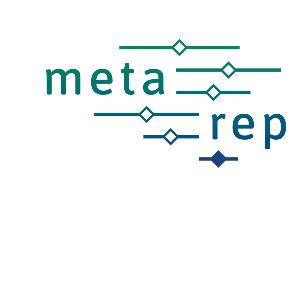
META-REP
A meta-scientific research program to analyse and optimise replicability in the behavioral, social, and cognitive Sciences.
Aims & Scope of META-REP
The behavioral, social, and cognitive sciences are in the midst of an intensive debate about the replicability of their empirical findings. Shaken by the results of many replication projects that have been conducted in recent years, scholars have begun discussing what replicability actually means and when a replication can be regarded as successful vs. failed, whether low replication rates are caused by too many false positive findings in the literature, methodological weaknesses in the replication studies, measurement issues, and/or the underappreciated influence of contextual effects, and what can be done to effectively and sustainably secure a high level of replicability in the behavioral, social, and cognitive sciences.
The priority program "META-REP" (SPP 2317) aims to contribute significantly to this debate by
- describing and defining "replication" (including "successful" vs. "failed" replications) across different scientific disciplines (the "what" question),
- explaining why replication rates vary across and within different disciplines (the "why" question), and
- evaluating measures that have been proposed and implemented to increase replication rates (the "how" question).
For further information see our DFG Project Proposal.
Project Introductions
The different projects from META-REP introduce themselves with short videos. Here you can watch the videos of the projects from the first funding (2022 - 2024) and the second funding phase (2025 - 2027).
Key Questions
The priority program META-REP (SPP 2317) aims to contribute significantly to this debate by
describing and defining "replication" (including "successful" vs. "failed" replications) across different scientific disciplines.
The priority program META-REP (SPP 2317) aims to contribute significantly to this debate by
explaining why replication rates vary across and within different disciplines.
The priority program META-REP (SPP 2317) aims to contribute significantly to this debate by
evaluating measures that have been proposed and implemented to increase replication rates.
ECR Contact Person
If you have any questions, uncertainties or challenges during your doctorate - be it in relation to your supervisory relationship, collaboration in the project or other topics - you can contact Susann Fiedler at any time for a low-threshold discussion.
Whether for a confidential conversation, a brief consultation or simply a virtual coffee to exchange ideas: the offer is aimed at all doctoral researchers in the META-REP project. Susann Fiedler is a member of the Ombuds Committee of the German Psychological Society (DGPs) and has extensive experience in supporting and advising early career researchers.
You can reach Susann Fiedler at
📧 susann.fiedler@wu.ac.at
📞 +43 1 31336 6680
Feel free to get in touch at any time.
Program Committee
Program Coordination & IT Coordination
| Name | Telefon | Raum | Funktion | |
|---|---|---|---|---|
| Schiltenwolf, Moritz | M.Schiltenwolf@lmu.de | +49 89 2180-4875 | 1307 | Wissenschaftlicher Mitarbeiter | PostDoc |
| Frank, Maximilian | maximilian.frank@psy.lmu.de | 3103 | Wissenschaftlicher Mitarbeiter | Doktorand |
Contact
Ludwig-Maximilians-Universität München
Lehrstuhl Sozialpsychologie
Leopoldstraße 13a
80802 München
Phone: +49 (0)89 2180 5182
email: meta-rep.coordination@psy.lmu.de
Logo







